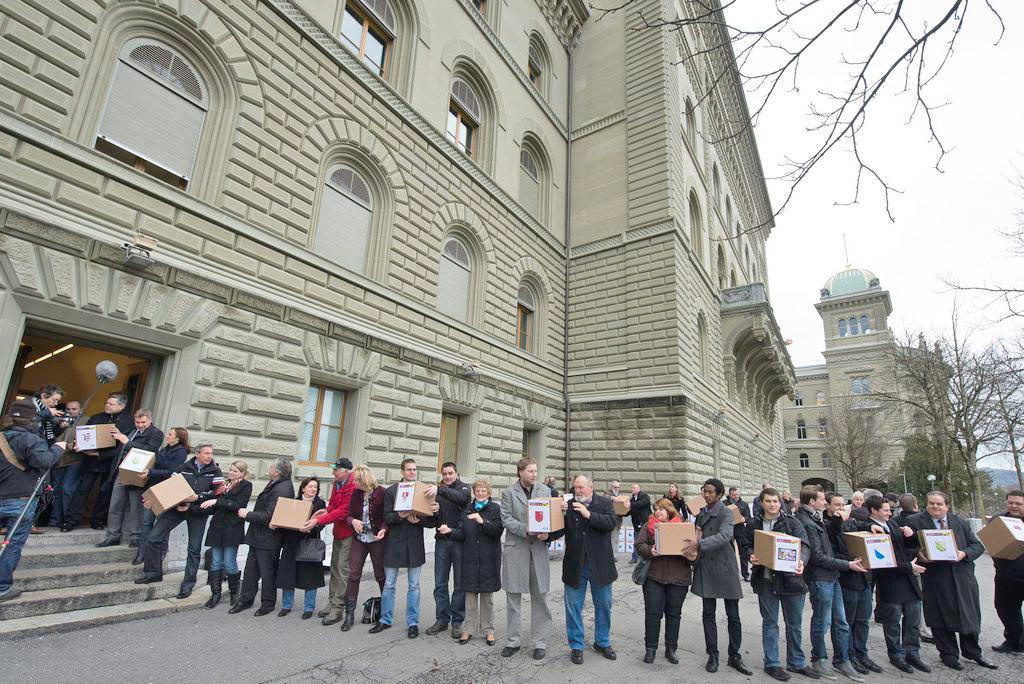Election process ‘too complex’, say young people

Swiss youth parliaments have called on the government to encourage dialogue between pupils and politicians as about half of young voters find the election process too complicated and do not understand what politicians are saying.
People between the ages of 15 and 21 complained that political language is too complicated, candidates are not well known and the process is generally too difficult to understand, according to a survey commissioned by the federation for Swiss youth parliaments and conducted by the leading GfS Bern research and polling institute.
More than half – 56% – said they had trouble finding a candidate with the same political views, 49% struggled to find a suitable political party and 51% said they didn’t understand politicians, the federation said on Tuesday.
It urged the government to take measures to increase participation among adults aged 18-25 in the 2015 elections. Participation could reach as much as 40% if young people are encouraged to take part, it said.
The federation added that problems like complexity are much easier to deal with than a lack of motivation.
Talks with parents
A total of 1,309 pupils aged 15-21 were questioned in all three main language regions. A majority believed that it was a civic duty to participate in elections.
Discussions with their parents are the main reason why young people take part in elections and votes, the researchers found. Lagging far behind are school and work place.
Measures suggested by the organisers include encouraging dialogue between pupils and politicians, offering more multimedia information about elections and running a campaign pointing out the importance and repercussions of political participation.
The federation has created a website called easyvote to make politics, votes and elections more accessible for young people.

In compliance with the JTI standards
More: SWI swissinfo.ch certified by the Journalism Trust Initiative












You can find an overview of ongoing debates with our journalists here . Please join us!
If you want to start a conversation about a topic raised in this article or want to report factual errors, email us at english@swissinfo.ch.